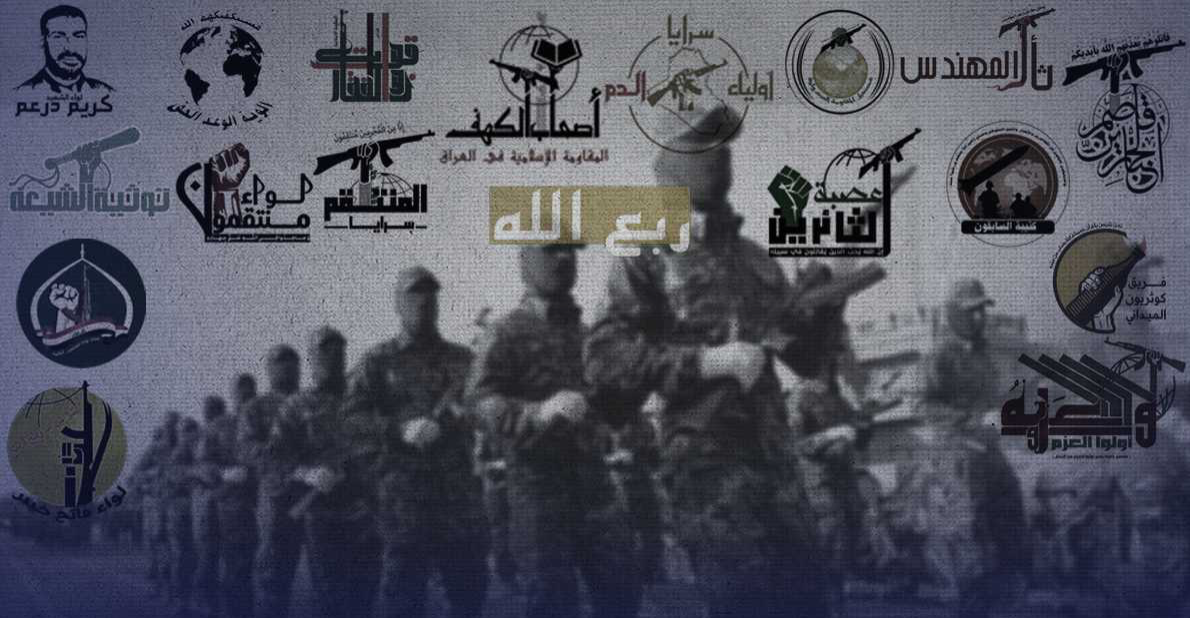A “black” trick and banking loophole generate millions of dollars for Iraqi factions.
 A US report revealed that Iranian-backed Iraqi militias have been exploiting a loophole in the Iraqi banking system, namely Visa and MasterCard, to withdraw dollars from Iraq. Transactions have rapidly increased to $1.5 billion per month.
A US report revealed that Iranian-backed Iraqi militias have been exploiting a loophole in the Iraqi banking system, namely Visa and MasterCard, to withdraw dollars from Iraq. Transactions have rapidly increased to $1.5 billion per month.
A report by the American newspaper “The Wall Street Journal,” translated by Shafaq News Agency, explained that loopholes and weak oversight have allowed the militias to benefit from manipulating the credit card system. It added that the small market that appeared for Visa and Mastercard in early 2023 has suddenly transformed into a financial transfer operation worth $1.5 billion per month. American and Iraqi officials say that behind it stand Iranian-backed militias exploiting American payment systems to circumvent sanctions and reap huge profits.
Noting that “a new loophole has replaced the old one,” the report explained that after the US Treasury and the Federal Reserve Bank of New York halted fraudulent international bank transfers conducted by Iraqi banks in late 2022, Iraqi militias quickly shifted to using another mechanism, namely Visa and Mastercard credit and prepaid cards.
The report noted that the card system emerged with the dismantling of the previous system of bank transfers, which lacked anti-money laundering controls. This flawed system was introduced by the United States after the Iraq War and allowed militias and Iran access to billions of dollars. It added that the sudden shift to bank cards occurred almost immediately after the shutdown of that tap.
The report stated that by mid-2023, cross-border transactions using Iraqi cards had increased by nearly 3,000%, indicating that a significant portion of this volume was related to the exploitation of the gap between the official exchange rate and its high black market rate.
The report explained that the militias and their partners load the cards in Iraq, then use them to withdraw dollars from neighboring countries. They then return the cash to Iraq and exchange it for dinars at a profit that has sometimes reached 21%.
The report quoted officials as saying that the profits were substantial, with cardholders linked to the militias generating an estimated $450 million in profits in 2023 alone from this fraud. They added that Visa and Mastercard, which charge fees on international transactions, together generated approximately $120 million from these practices.
According to the report, despite repeated warnings from the US Treasury Department since mid-2023, Visa and Mastercard delayed taking action for several months. It added that after Treasury officials revealed that individuals linked to militias were flooding ATMs in Dubai with their Iraqi bank cards, the two companies postponed major action until March 2024.
In addition, the report noted that the militias have expanded their operations by using fictitious transactions with foreign merchants, point-of-sale devices that operate via VPNs, and smuggling networks to transfer money.
According to the report, some merchants accepted fake purchases in exchange for cash, a portion of which was returned to the seller, while others helped launder these transactions through jewelry stores and shops in free trade zones in the UAE and Turkey.
Additionally, the report stated that Iraqi government-backed cards were also used, as Qi cards, designated for paying the salaries of government employees and militia members, were a key part of the fraud scheme. Militias seized the cards of ordinary fighters, and the names of fictitious employees were inserted onto payrolls to obtain more cards, which were then used in this transaction cycle.
Under mounting pressure, Mastercard and Visa finally implemented sweeping measures in early 2024, according to the Wall Street Journal. Mastercard cancelled more than 100,000 cards and removed 4,000 UAE merchants from its network. Visa followed suit, identifying 70,000 suspected fraudulent cards and temporarily banning thousands of foreign sellers.
The US report indicated that Iraqi regulatory authorities imposed a monthly maximum of $300 million on cross-border transactions, and a maximum limit of $5,000 per cardholder.
In addition, the report noted that the Central Bank of Iraq hired a New York-based financial crimes firm to monitor the system and required all card issuers to operate through banks with correspondent relationships with the United States, while many Iraqi card issuers were excluded from the Visa and Mastercard networks.
The US report noted that the Treasury Department blacklisted three card companies suspected of having ties to militias, including a company affiliated with the Imam Abbas Shrine in Karbala, a major destination for Iranian pilgrims.
He considered this case to reveal significant weaknesses in global payment systems, particularly in fragile or poorly regulated markets. He noted that Iraq’s economy remains heavily reliant on cash transactions, while oversight is weak. The transition to digital payments occurred without adequate safeguards, allowing armed groups subject to US sanctions to exploit Western infrastructure to circumvent restrictions.
He concluded that despite Visa and Mastercard’s assertions of their rapid response and strong cooperation with authorities, US and Iraqi officials believe the companies’ delay allowed the fraud to expand and reach billions of dollars.
The Wall Street Journal report concluded by noting that while the United States seeks to preserve the global integrity of the dollar and strengthen the implementation of sanctions, the Iraqi payment system and the companies operating within it have become a stark warning of what can happen when financial innovations bypass oversight.
Shafaq.com
